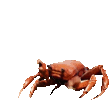Image is of a colectivo: an armed group, usually operating in impoverished areas, which act to support and defend the socialist government of Venezuela. They are often derided as vigilante terrorist groups which prop up the government, because cops are only bad when they are socialist and not murdering minorities, I suppose.
Maduro's party, the PSUV, has won the election after a staggering amount of propaganda by the opposition, who said their polls suggested they were going to win and that Maduro's loss was inevitable. The reaction across Latin America is what one would expect. Left-leaning leaders are generally respecting the results and congratulating Maduro, while those on the right and/or are US puppets (such as in semirecently-couped Peru) are calling for recounts, or even that the election was illegitimate. The US itself is also unhappy about the results. We shall soon see if their unhappiness boils over into yet another coup attempt.
Personally, I think they should have ran Guaido again.
![]()
![]()
Thank you to @Redcuban1959@hexbear.net for the election coverage here, and everything else they do in the news megathread.
The COTW (Country of the Week) label is designed to spur discussion and debate about a specific country every week in order to help the community gain greater understanding of the domestic situation of often-understudied nations. If you've wanted to talk about the country or share your experiences, but have never found a relevant place to do so, now is your chance! However, don't worry - this is still a general news megathread where you can post about ongoing events from any country.
The Country of the Week is Venezuela! Feel free to chime in with books, essays, longform articles, even stories and anecdotes or rants. More detail here.
Please check out the HexAtlas!
The bulletins site is here!
The RSS feed is here.
Last week's thread is here.
Israel-Palestine Conflict
Sources on the fighting in Palestine against Israel. In general, CW for footage of battles, explosions, dead people, and so on:
UNRWA daily-ish reports on Israel's destruction and siege of Gaza and the West Bank.
English-language Palestinian Marxist-Leninist twitter account. Alt here.
English-language twitter account that collates news (and has automated posting when the person running it goes to sleep).
Arab-language twitter account with videos and images of fighting.
English-language (with some Arab retweets) Twitter account based in Lebanon. - Telegram is @IbnRiad.
English-language Palestinian Twitter account which reports on news from the Resistance Axis. - Telegram is @EyesOnSouth.
English-language Twitter account in the same group as the previous two. - Telegram here.
English-language PalestineResist telegram channel.
More telegram channels here for those interested.
Various sources that are covering the Ukraine conflict are also covering the one in Palestine, like Rybar.
Russia-Ukraine Conflict
Examples of Ukrainian Nazis and fascists
Examples of racism/euro-centrism during the Russia-Ukraine conflict
Sources:
Defense Politics Asia's youtube channel and their map. Their youtube channel has substantially diminished in quality but the map is still useful.
Moon of Alabama, which tends to have interesting analysis. Avoid the comment section.
Understanding War and the Saker: reactionary sources that have occasional insights on the war.
Alexander Mercouris, who does daily videos on the conflict. While he is a reactionary and surrounds himself with likeminded people, his daily update videos are relatively brainworm-free and good if you don't want to follow Russian telegram channels to get news. He also co-hosts The Duran, which is more explicitly conservative, racist, sexist, transphobic, anti-communist, etc when guests are invited on, but is just about tolerable when it's just the two of them if you want a little more analysis.
On the ground: Patrick Lancaster, an independent and very good journalist reporting in the warzone on the separatists' side.
Unedited videos of Russian/Ukrainian press conferences and speeches.
Pro-Russian Telegram Channels:
Again, CW for anti-LGBT and racist, sexist, etc speech, as well as combat footage.
https://t.me/aleksandr_skif ~ DPR's former Defense Minister and Colonel in the DPR's forces. Russian language.
https://t.me/Slavyangrad ~ A few different pro-Russian people gather frequent content for this channel (~100 posts per day), some socialist, but all socially reactionary. If you can only tolerate using one Russian telegram channel, I would recommend this one.
https://t.me/s/levigodman ~ Does daily update posts.
https://t.me/patricklancasternewstoday ~ Patrick Lancaster's telegram channel.
https://t.me/gonzowarr ~ A big Russian commentator.
https://t.me/rybar ~ One of, if not the, biggest Russian telegram channels focussing on the war out there. Actually quite balanced, maybe even pessimistic about Russia. Produces interesting and useful maps.
https://t.me/epoddubny ~ Russian language.
https://t.me/boris_rozhin ~ Russian language.
https://t.me/mod_russia_en ~ Russian Ministry of Defense. Does daily, if rather bland updates on the number of Ukrainians killed, etc. The figures appear to be approximately accurate; if you want, reduce all numbers by 25% as a 'propaganda tax', if you don't believe them. Does not cover everything, for obvious reasons, and virtually never details Russian losses.
https://t.me/UkraineHumanRightsAbuses ~ Pro-Russian, documents abuses that Ukraine commits.
Pro-Ukraine Telegram Channels:
Almost every Western media outlet.
https://discord.gg/projectowl ~ Pro-Ukrainian OSINT Discord.
https://t.me/ice_inii ~ Alleged Ukrainian account with a rather cynical take on the entire thing.


https://xcancel.com/pawelwargan/status/1813851497781764474
a twitter thread about the Polish political concept of "Intermarium"
more
is this waste of oxygen still alive?
yay he's dead